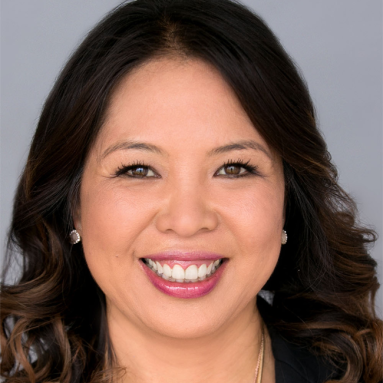Annalisa Enrile
Teaching Professor
Storyteller, anti-trafficking warrior, and defender of the rights of women and girls who is dedicated to training the next generation of change makers.
Annalisa Enrile
Teaching Professor
Storyteller, anti-trafficking warrior, and defender of the rights of women and girls who is dedicated to training the next generation of change makers.
Biography
Annalisa Enrile is one of the few Filipina PhDs in social work, having chosen the field as a way to bring to light important social issues in the Filipino-American community, the fastest-growing Asian immigrant population. She frequently speaks out against sex trafficking, anti-militarization and exploitative migrant labor. A voice for equity and global justice, Enrile has been recognized as one of the 100 Most Influential Filipinas in the World (FWN Global 100) for her efforts to stop violence against women. She has worked with students, communities and academic partners to create social change through innovation and collaboration.
Enrile, who leads the Philippines immersion program at the school, developed the experiential learning opportunity as a more tangible means to study and chronicle human rights violations. Her goal is to help students understand how social work theory is put into practice on a global scale using hands-on skills that transfer to their work in the United States. Capstone projects involve the collaboration between students and Filipino grassroots organizations working to address pertinent social issues within the country through sustainable partnerships. Enrile uses these techniques of engagement in her teaching, developing and facilitating unique pedagogies for online and on-campus students. Enrile teaches in the school's Virtual Academic Center and lead instructor on several MSW and DSW courses.
Enrile is active in community organizations, including serving on several anti-trafficking task forces, and is on the board of the Mariposa Center for Change, an organization that serves women and children of color. She consults with organizations such as the Coalition to Abolish Slavery and Trafficking (CAST), YWCA Greater Los Angeles, and Search to Involve Pilipino Americans (SIPA).
Media
Education
University of California, Los Angeles
PhD 2006
University of California, Los Angeles
MSW 2000
University of California, Los Angeles
BA 1996
Area of Expertise
- Human Rights
- Anti-militarization
- Immigration Policy
- Sex Trafficking
- Migrant labor
Industry Experience
- Education/Learning
- International Affairs
- Program Development
- Research
- Public Policy
- Women
- Health and Wellness
Accomplishments
Global 100 Award
Articles & Publications
Global violence against women: Critical feminist theory, social action, and social work in the Philippines | The Global Studies Journal
GABNet: A case study of transnational sisterhood and organizing | Amerasia Journal
Differences in attitudes towards women among three groups of Filipinos: Filipinos in the Philippines, Filipino American immigrants, and US born Filipino Americans | Journal of Ethnic & Cultural Diversity in Social Work


